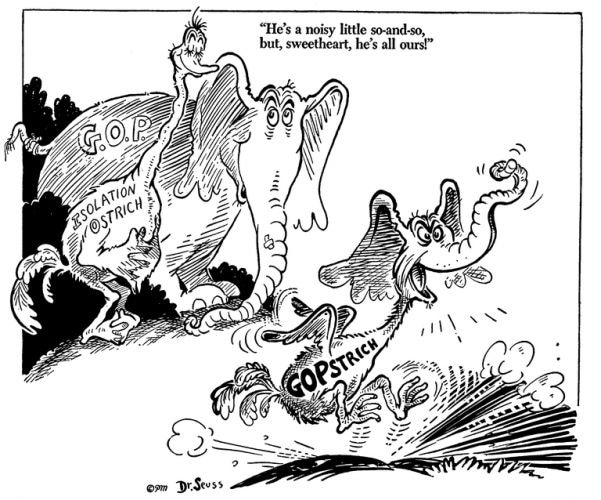We told you so.
Those of us who have studied the recent resurgence of pseudo-scientific ideas about the human past have been saying for years that this stuff isn't just entertainment. Conceptions about what happened in the past matter deeply to the present, as our orientation toward the world (and particularly its peoples) necessarily depends on an understanding of how the world got to be what it is. We explain the present by reference to the past. That's why getting it right matters. That's why we've developed scientific methods for understanding the past that employ mechanisms to determine if our interpretations are right or wrong.
With the Trump administration barely a week old, you're already seeing seeing the effects of disregarding evidence-based reality and crafting federal policy based on ideologies about the human past. So . . . it's "funny" when it's on the History Channel but not so "funny" when it's keeping real humans detained in airports indefinitely.
As alarming as it is to see it materialize at the highest levels of our government, the white supremacist ideology that we're now watching surface is nothing new. It's been around since long before any of us was born -- at least since the age of European exploration and colonialism- -- and has manifest itself in different forms at different times and places. The "white people are naturally the best people" assertion has been a steady constant in pseudo-scientific claims about the human past from the early 1800's right up to the present day. Some of the current proponents of Victorian-age baloney ideas about Atlantis, Aryans, giants, and the pre-Columbian colonization of the Americas by white people are unabashed racists and neo-Nazis. And now we've elevated them from selling factually inaccurate, heavily plagiarized books on CreateSpace to whispering in the president's ear.
If you want to know what the alt-right thinks about the origins of race and what it has to do with government and economics, listen to this podcast titled "The Origins of the White Man." In it, Richard Spencer (an alt-right figure most famous for leading Trump supporters in a Nazi salute immediately following the election, and, more recently, getting punched in the face twice in one day while celebrating Trump's inauguration) interviews Kevin MacDonald (a retired psychology professor and current editor of the Occidental Observer, a white nationalist publication).
One thing I did learn from listening to the interview is that the white supremacist ideology of the alt-right does have a logical connection to their ideas about government, economics, and immigration. If your reaction to the anti-immigrant rhetoric and policies that we're seeing is that "it's all about hate," I will tell that it's more than that. I encourage you to listen to the interview that I linked to above and hear for yourself how the alt-right's ideas about race, society, government, and economics are inter-linked. Speaking in the context of claims that the success of white European societies can be attributed to their tripartite structure (a merchant class, a warrior class, and "those who pray"), Spencer identifies what he thinks is wrong with the United States (about 25:00 in):
It's about intolerance, sure, but it's a philosophical, strategic intolerance that goes well beyond some kind of visceral reaction to all non-white people. I think we need to understand that. And I don't think it's irrelevant that the blueprint for society that we're now seeing stamped across our political and economic landscape is drawn directly from claims about the human past that are demonstrably baloney. I winced when Rachel Maddow showed Spencer's post-election speech and kept smirking at his use of the phrase "Children of the Sun." Neither she nor any other member of the mainstream media caught the deep historical connection to the white supremacist rhetoric of hyperdiffusionism. If you don't know what it is, look it up. Fringe history is in the White House now, and you should know where the "harmless" ideas come from -- it matters.



 RSS Feed
RSS Feed
